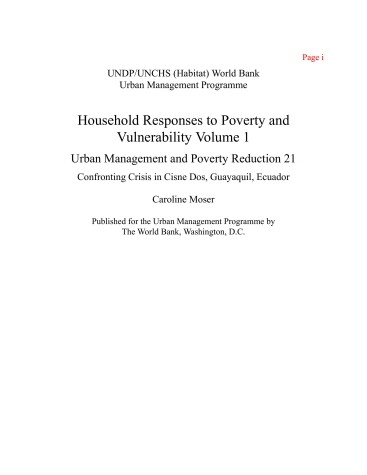This case study presents the main findings from the community of Cisne Dos, in Guayaquil, Ecuador. The study explored how poor households respond to changes in economic circumstances and labor market conditions, what strategies they adopt to limit the impact of shocks and generate additional resources, and what constraints impede their actions. Three features distinguish this study from other poverty studies:a micro-level approach combining households and communities as the main units of analysis, an unusually long period of observation for some communities and households, and a comparative framework offering fours cases with very different economic development levels and institutional contexts. The study concludes with some priority recommendations for action:1) support households in their role as safety net; 2) alleviate constraints on women's labor supply; 3) ensure that social capital is not taken for granted; 4) develop social policy that integrates human capital and social capital; 5) pursue further research; and 6) develop tools and indicators to strengthen the assets of the poor.
- ISBN10 0821338471
- ISBN13 9780821338476
- Publish Date 10 March 1998 (first published 1 January 1997)
- Publish Status Active
- Publish Country US
- Imprint World Bank Publications
- Format Paperback
- Pages 154
- Language English
